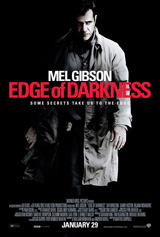When I was readying the inaugural issue of Southern California Review for publication this spring, I personally copy-edited the entire volume at least three times. Although we are fortunate to have a professional editor lending her expertise gratis, it’s imperative to have one obsessively detailed editor who reads everything so that the grammar and punctuation choices are consistent. (Yes, sometimes grammar and punctuation are choices—the key is consistency.)
So I methodically went through every short story, poem, essay, interview, and stageplay and capitalized the first words of independent clauses that followed colons. For example, in Judith Freeman’s short story “Chandler Takes a Walk,” I made sure the sentence read, “… and this, in the end, was what it all came down to: You just want to make it the last fifty feet to the bar.”
I even tried to do this in the poems, although I knew poets enjoy more latitude when it comes to capitalization and punctuation. Some of our contributors expressed doubt, but it was Richard Foerster, whose poem “Exodus” we published, who pointed out during the copy-edit approval process, “Re the cap T after the colon: I always used to capitalize the next word when it began a sentence rather than a phrase, but now I think the Chicago Manual says to do so only if more than one sentence or a paragraph is governed by the colon.”
Years of habit prevented me from taking Mr. Foerster’s word for it, so I checked the Chicago Manual of Style on hand at USC’s Writing Center where I work part-time, and, no, there the advice was to indeed capitalize the first word after a colon if what follows the colon is a complete sentence. However, when I checked my just-purchased 15th edition, I found this: “When a colon is used within a sentence … the first word following the colon is lowercased unless it is a proper name.”
The rule had changed!
Having been quite happily advised to use Chicago as our official style guide, I went back and changed all such occurrences throughout SCR, including Ms. Freeman’s: “… and this, in the end, was what it all came down to: you just want to make it the last fifty feet to the bar.”
Although this style still looks wrong to me, and I’ve met resistance when suggesting it to clients, the lower-case rule makes sense. After all, where else in all of grammar, aside from quotations, does capitalization occur in the middle of the sentence? This is not something we do for the closely related semicolon.
Chicago does make exceptions, however: “When a colon introduces two or more sentences … or when it introduces a speech in dialogue or an extract … the first word following it is capitalized.”
The latter two examples—a speech in dialogue or an extract—are pretty obvious. In literary-formatted plays, the characters’ names are followed by a colon and then their dialogue, which begins with a capital letter, as in this example from Lee Wochner’s political dystopia “The Fifth Administration”:
Dallas: … As of today, France is a tourist replica of France.
Ramsey: How realistic is it? Does France seem like France?
Dallas: Remarkably accurate. Weber landed after the switch over and got spit on right away.
Also, if a colon is used to introduce an extract, just like with a quotation, you would capitalize the first word of the excerpt:
In her short story “Chandler Takes a Walk,” Judith Freeman imagines a day late in the noir writer’s life: “All morning long the clouds gathered over the sea, an ominous band of gray stretching across the horizon. He stood at the kitchen window, looking out at the day. The weather had changed. It looked as if it might rain.”
It’s the first exception—”when a colon introduces two or more sentences”—that the capitalization rules gets a bit wonky. Let’s riff on Freeman:
… and this, in the end, was what it all came down to: You just want to make it the last fifty feet to the bar. You want to order a drink. And you want to enjoy it in peace.
That’s Chicago. AP, however, still advises capitalizing the first word after a colon “if it is a proper noun or the start of a complete sentence.” And Hacker says it’s optional.
I’ve said it before, and I’ll say it again: the key is consistency—pick a style and stick with it. (You see how there I avoided the issue altogether by using the em dash?)
References
Chicago Manual of Style, The. Chicago: The University of Chicago Press, 2003.
Goldstein, Norm, ed. The Associated Press Stylebook. New York: Basic Books, a Member of the Perseus Books Group, 2007.
Hacker, Diana. The Bedford Handbook for Writers. Boston: Bedford Books of St. Martin’s Press, 1991.
Caught in the ’Net
A Chicago University study has found that although languages structure their sentences differently-English typically starts with the subject followed by the verb and then the object, whereas Turkish starts with the subject followed by the object and then the verb-the mind, no matter what its native tongue, organizes action by subject then object then verb.
I also stumbled on this Newsweek article from a dozen years ago, which speaks to the dot-com proliferation of written communication, the resulting demand for good grammar, and the general population’s passion for the laws of language, once the intimidating jargon is removed from the conversation.







